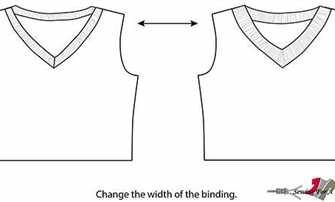
Welcome to the exciting world of photography! Yay! Whether you’ve always wanted to be a photographer or you’ve just discovered your passion for it, starting up your own photography business can be a highly rewarding and successful venture. But before you dive into the world of cameras and clients, there are a few important steps you need to take.
The first and most important step is to think about what type of photography you want to specialize in. There are so many options out there, from wedding photography to nature photography and everything in between. Think about what you enjoy the most and what you’re already good at. This will help you determine your niche and target audience.
Once you’ve decided on your photography theme, it’s time to think about your gear. Photography can be an expensive hobby, but it doesn’t have to be. Depending on your budget and the type of photography you want to do, you can start off with a minimum gear list. Whether you’re willing to invest in a full-frame camera or you’re happy with your smartphone or tablet, the most important thing is to have a camera that you’re comfortable with and that produces high-quality images.
Now that you have your gear, it’s time to set up your studio. This can be a dedicated space in your home or a separate location. It’s important to have a clean, well-lit environment where you can work and bring your clients. Don’t forget to check the legal and financial requirements for starting a photography business in your country or state. You may need to open a separate bank account, gain the necessary permits, and set up an accounting system.
If you’re serious about starting a photography business, you need to treat it as a business. This means setting goals, creating a business plan, and thinking about how you want to grow your client base. Marketing and networking are crucial in the photography industry, so don’t be afraid to put yourself out there. Attend industry events, join photography groups, and reach out to potential clients and agencies. Education is also important, so consider taking photography classes or workshops to improve your skills and stay up-to-date with the latest tech and trends in the industry.
Starting a photography business can be tough, but with the right mindset and a willingness to learn and adapt, you can turn your passion into a viable and successful career. Remember, every successful photographer started somewhere, so don’t stress if you’re just starting out. Just take it one step at a time and enjoy the journey!
- 8 steps to setting up a photography business
- How to Set Up a Photography Business
- Got a smartphone or tablet
- Some steps to get you started:
- The Cost to Start a Photography Business
- The Minimum Viable Business MVB
- Don’t Stress the Gear
- Serious Business is Serious Yay Legal Stuff
- The Tech Stuff
- Business Education: This is the most important part
- Grow your client listwith Agency Access
8 steps to setting up a photography business
Starting your own photography business can be both exciting and challenging. Whether you’re already a professional photographer or just getting started, there are certain steps you can follow to set yourself up for success. Here are eight essential steps to help you establish and grow your photography business.
1. Define your niche
Before you dive into setting up your photography business, it’s important to define your niche. Consider your interests, skills, and the type of photography you enjoy the most. By picking a specific niche, such as wedding photography or product photography, you can focus your efforts and develop expertise in that area.
2. Gain the necessary education and experience
To be a successful photographer, it’s important to have a solid foundation of knowledge and skills. Consider taking photography courses or workshops to enhance your technical skills and learn about different photography techniques. Additionally, gaining practical experience through internships or second shooting gigs can provide valuable hands-on experience.
3. Invest in the right gear
Having the right gear is crucial for photographers. Depending on your niche, you’ll need to invest in a high-quality camera, lenses, lighting equipment, and other accessories. Do thorough research to understand what equipment is necessary for your specific photography style and budget accordingly.
4. Set up a home studio or consider renting a studio
Having a dedicated space to work on your photography is important. Depending on your budget and the type of photography you do, you can either set up a home studio or rent a studio space. Having a dedicated studio will provide you with a professional environment to meet with clients and showcase your work.
5. Define your pricing and packages
Decide how much you will charge for your photography services and what packages you will offer. Research the market rates in your area to ensure that your prices are competitive. Consider offering different packages to cater to clients with varying needs and budgets.
6. Create an online presence
In today’s digital world, having an online presence is essential for any business. Create a website to showcase your portfolio and provide information about your services. Use social media platforms to share your work and engage with potential clients. Don’t forget to create business accounts on platforms like Pinterest and Instagram to reach a wider audience.
7. Network and build relationships
Networking is key to growing your photography business. Attend industry events, join photography associations or groups, and reach out to other photographers to build relationships. Collaborating with other professionals can lead to referrals and opportunities for growth.
8. Legal and financial considerations
Before officially starting your photography business, make sure you understand and fulfill all legal and financial requirements. Determine whether you need to register your business, obtain any necessary licenses or permits, and set up a separate business bank account. Consider consulting with an accountant or an agency to ensure that you’re meeting all the legal and financial obligations.
By following these eight steps, you’ll be well on your way to setting up a successful photography business. Remember, starting a business can be tough, but with the right mindset, dedication, and hard work, it’s definitely a viable and rewarding venture.
How to Set Up a Photography Business
Starting a photography business can be a highly rewarding and fulfilling venture. Whether you have already got a camera and know how to use it, or you are willing to invest in the necessary gear and education, starting your own photography business can open up a world of opportunities for you.
The first and most important step is to think seriously about whether or not you are willing to commit to the business side of photography. While being a photographer can be fun and exciting, running a successful photography business requires a lot of hard work, dedication, and the ability to handle the stress of being a business owner.
Here are some practical steps to guide you in setting up your photography business:
- Educate Yourself: If you are getting into photography as a business, it is important to gain as much knowledge and skill as possible. Invest in photography courses or workshops, read books and articles, and learn from experienced photographers. The more you know, the better equipped you will be to succeed.
- Choose Your Niche: Photography is a broad field, so it is important to pick a niche or specialty that interests you and aligns with your skills and style. Decide whether you want to focus on wedding photography, portrait photography, wildlife photography, or any other specific area.
- Invest in the Right Gear: While a professional-grade camera and lenses are essential, remember that equipment alone doesn’t make a great photographer. However, having the right gear will help you produce high-quality photos and impress potential clients.
- Set Up a Studio: Depending on the nature of your photography business, you may need to set up a studio. This will provide you with a controlled environment for your photo shoots and allow you to offer indoor sessions to clients. Take into account the cost of renting or buying a studio space when planning your budget.
- Get Legal and Financial Matters in Order: Register your photography business with the appropriate government agency and obtain any necessary licenses or permits. Familiarize yourself with tax obligations and consider consulting with an accountant or financial advisor to ensure you are managing your finances properly.
- Market Your Business: Getting your name out into the world is crucial for attracting clients. Build a professional website or create profiles on social media platforms to showcase your work. Market your services through local advertising, word-of-mouth, and networking with other professionals.
- Build a Client List: Start by offering your photography services to friends, family, and acquaintances. Ask them to spread the word to their own networks. Consider offering discounted rates or special promotions to attract new clients and build a portfolio of work.
- Deliver Excellent Customer Service: To be successful in any business, including photography, providing excellent customer service is of utmost importance. Be prompt, reliable, and friendly with clients. This will not only help you retain existing clients but also attract new ones through positive recommendations.
Remember that starting a photography business is a journey, and it may take time to establish yourself and grow. Stay dedicated, continuously improve your skills, and adapt to the ever-growing tech world to stay relevant. With determination and hard work, you can turn your passion for photography into a viable and fulfilling profession.
Got a smartphone or tablet
If you’re interested in starting a photography business but don’t have a professional camera yet, don’t worry! You can still get started with just your smartphone or tablet. Many successful photographers began their careers using mobile devices, so it’s definitely a viable option.
The first step is to think about whether you’re willing to invest in a high-quality camera later on. If you think you’ll eventually want to upgrade, then starting with a smartphone or tablet is a great way to dip your toes into the world of photography without the upfront cost of a professional camera.
Having a smartphone or tablet also means you already have a camera with you at all times, allowing you to capture moments and practice your skills whenever inspiration strikes. Plus, the built-in editing options on these devices can help you enhance your photos right away.
If you already have a smartphone or tablet, the next step is to open an account on a photography platform like Instagram or Flickr. This will allow you to start building a portfolio and showcasing your work to potential clients. It’s important to remember that having a strong online presence is key to growing your photography business.
While a smartphone or tablet is a great starting point, it’s important to keep in mind that a professional camera will give you more control over settings and allow you to capture higher quality images. If you’re serious about pursuing photography as a career, it may be worth saving up to invest in a good camera in the future.
Another option to consider is setting up a small studio at home. This can be a dedicated corner or room where you can control the lighting and props for your photo shoots. It may be tough to replicate the look of a professional studio, but with creativity and resourcefulness, you can definitely make it work.
Additionally, don’t forget about the legal and business side of starting a photography business. You may need to register your business, obtain necessary permits, and set up a separate bank account for your photography income. It’s also important to have contracts in place with your clients and to keep track of your expenses and income for tax purposes.
Overall, starting a photography business with a smartphone or tablet is a viable option. And while it may have its limitations, with the right skills, dedication, and equipment, you can still produce high-quality work and build a successful career as a photographer.
Some steps to get you started:
- Make a list of the gear you already have and what you still need to invest in
- Choose a photography theme or niche that you want to focus on
- Check out other photographers’ work for inspiration and to see what’s already out there in your chosen niche
- Get feedback from friends, family, or other photographers on your work
- Consider attending photography workshops or taking online courses to gain more technical knowledge and improve your skills
- Set a minimum price for your photography services to ensure you’re being compensated fairly for your time and expertise
- Be willing to start small and take on jobs even if they don’t pay highly or align exactly with your desired niche
- Consider joining a photography agency or listing your services with online platforms to gain more exposure and access to potential clients
Remember, starting a photography business takes time and effort. It’s a highly competitive industry, but with the right combination of skills, passion, and business savvy, you can turn your love for photography into a successful career.
источники: MVB Photo, The Balance Small Business, The Modest Wallet
The Cost to Start a Photography Business
Starting a photography business can be an exciting and rewarding venture. Whether you’ve always wanted to capture the world through the lens of a camera or you’re a serious photographer looking to take your passion to the next level, setting up your own photography business is a big step.
But before you start dreaming about all the amazing photos you’ll take and the clients you’ll impress, there are some important things to consider, including the cost of getting started.
One of the first things you’ll need to think about is the cost of your gear. Photography can be an expensive hobby, and professional equipment can quickly add up. A good camera is a must, and if you’re already into photography, you may already have one. However, if you don’t have a camera yet or if you’re looking to upgrade, you’ll want to budget for a high-quality camera that can meet your needs.
In addition to the camera, you’ll also need other gear, such as lenses, tripods, lighting equipment, and memory cards. Don’t forget about the cost of a computer or tablet for photo editing and post-processing. If you want to be a successful photographer, investing in the right tech is crucial.
Another cost to consider is the legality of starting a photography business. Depending on where you live, there may be certain licenses or permits you need to obtain. It’s important to check into the legal requirements in your area and budget for any necessary fees.
Once you have your gear and legalities sorted out, you’ll need to think about the cost of marketing and promoting your business. Building a strong online presence is key for photographers, so setting up a website and social media accounts is highly recommended. If you don’t have the skills to do this yourself, you may need to hire a web designer or social media manager.
Having a studio is also a cost to consider. While it’s not necessary for every type of photography, having a dedicated space can help you attract clients and give you a professional setting to work in. Renting or buying a studio space can be expensive, so think carefully about whether it’s the right choice for you.
Lastly, don’t forget to budget for ongoing expenses like insurance, accounting, and education. Insurance is important to protect yourself and your gear, and hiring an accountant can help you stay organized and ensure you’re on top of your finances. Continuing education is also important for photographers who want to keep growing and improving their skills.
Starting a photography business is never a one-size-fits-all situation. The cost will depend on your location, the type of photography you want to specialize in, and the goals you have for your business. However, it’s important to do your research, plan ahead, and be realistic about what it will take to start and grow a viable photography business.
While it’s tough to put an exact number on the cost of starting a photography business, most sources recommend having a minimum of $5,000-$10,000 in savings to cover initial expenses. However, this can vary greatly depending on your specific circumstances and goals.
Remember, starting a photography business is a lot of work, but with the right gear, skills, and determination, it can be a rewarding and fulfilling career. So, if you’re ready to make the leap, do your research, make a checklist, and start taking steps towards making your photography dreams a reality.
The Minimum Viable Business MVB

When starting out in photography, it’s important to set up a minimum viable business (MVB) to get yourself off the ground. Many photographers make the mistake of thinking they need a full studio, expensive gear, or a fancy agency to be successful. But the truth is, you don’t need all of that right from the start.
The most important aspect of starting a photography business is getting clients. Whether you have a studio or not, you can still pick up jobs and start building your client list. In fact, many photographers today are successful without ever having a physical studio. With the world becoming more digital, having an online presence and being able to showcase your work is much more important than having a studio.
Here are the steps to setting up your minimum viable business:
| Step | Description |
|---|---|
| 1 | Set up a website or online portfolio to showcase your work. This is where potential clients can see your style and decide whether they want to hire you. |
| 2 | Create social media accounts and actively post your work. This will help you gain exposure and reach potential clients. |
| 3 | Get yourself legally set up as a business. This may include registering your business name, getting an EIN, and opening a separate bank account for your photography income. |
| 4 | Invest in the minimum gear you need to get started. This could be as simple as a good camera and a few lenses. You don’t need the latest and most expensive equipment right away. |
| 5 | Start reaching out to potential clients and offering your services. You may have to do some free or low-cost jobs at first to gain experience and build your portfolio. |
| 6 | Focus on delivering high-quality work and providing excellent customer service to your clients. Word of mouth can be a powerful tool for growing your business. |
Remember, starting a photography business is not about having the fanciest gear or the most impressive studio. It’s about being willing to put in the time and effort to grow your business, even if you’re starting with the bare minimum. So don’t stress about not having everything figured out right away. The most important thing is to take that first step and get yourself out there as a photographer.
Don’t Stress the Gear
When starting up in photography, many people think that having the latest and most expensive gear is the key to success. However, that’s not entirely true. While having high-quality equipment can enhance your work, it’s not the only factor that determines your success as a photographer.
Whether you’ve already set up an account on a photo-sharing platform or you’re just starting out, it’s important to remember that the most important aspect of photography is your creativity and vision. A great photo can be taken with any camera, whether it’s a smartphone, a point-and-shoot, or a professional DSLR. The key is to focus on developing your skills and understanding the principles of photography.
While it’s tempting to go out and buy the latest camera and lens, it can be a costly investment, especially when you’re just starting out. Instead of spending your limited budget on gear, consider investing in education. There are numerous online courses, tutorials, and resources available that can help you improve your photography skills and knowledge.
Another important aspect to consider when starting a photography business is your clientele. While it’s great to photograph your friends and family, if you want to turn your passion into a successful business, you’ll need to start thinking about finding paying clients. This can be challenging in the beginning, but with time and determination, you can grow your client list.
Having a smart and strategic marketing plan is also crucial for growing your photography business. Think about your target audience and how you can reach them. Utilize social media platforms, create a portfolio website, and consider collaborating with local businesses or agencies to gain more exposure.
It’s also important to have legal and financial aspects in check when starting a photography business. Make sure you have a solid business plan, set your prices accordingly, and understand any legal obligations or requirements in your area.
Remember, success in photography is not just about the gear you have, but rather about the skills and creativity you bring to the table. Don’t stress too much about the equipment you currently have or don’t have. Focus on honing your craft, educating yourself, and building a strong network within the photography community. With time and dedication, you can become a successful photographer without breaking the bank on gear.
Serious Business is Serious Yay Legal Stuff
When it comes to starting up a photography business, there is much more to think about than just taking pretty pictures. Whether you’ve got dreams of growing your photography into a full-time career or you simply love the art and want to share it with the world, you need to take the necessary steps to make your business legally viable.
First and foremost, it’s important to have the right gear. A good camera is a must, but don’t overlook the importance of having the right lenses, lighting equipment, and other accessories. Investing in high-quality gear from the start will save you time, stress, and potentially costly repairs or replacements down the line.
Next, you’ll need to set up your business legally. This includes registering your business name, obtaining the necessary licenses and permits, and setting up an appropriate business structure. Consulting with an agency or lawyer knowledgeable in photography business law can help ensure that you’re following all the applicable rules and regulations.
Having a dedicated studio space is also important for many photographers. This not only gives you a professional setting to work in, but it also allows you to control the environment and set the stage for your creative vision. If you don’t have the means to rent or buy a studio right away, setting up a dedicated space in your home can still be a viable option.
Never underestimate the importance of education and continuous learning in the photography business. Even if you already have a solid foundation, it’s essential to stay up-to-date with the latest techniques, trends, and technologies. Joining photography clubs or taking workshops can be a great way to gain new skills and network with other photographers.
As you start getting jobs and clients, it’s crucial to have a system for managing your work and finances. Keeping track of invoices, expenses, and taxes is not the most exciting part of being a photographer, but it’s absolutely necessary. Consider using accounting software or hiring a professional to help you stay organized and on top of your financial responsibilities.
Finally, don’t forget to take care of yourself. Starting a photography business can be tough, so it’s important to find ways to manage stress and maintain a work-life balance. Schedule time for self-care, hobbies, and spending time with family and friends to avoid burnout.
In conclusion, starting up a photography business is not just about having a great eye for capturing beautiful images. It requires careful planning, legal considerations, the right gear, ongoing education, and effective business management. By following these steps and taking your business seriously, you can set yourself up for a successful and enjoyable photography career.
The Tech Stuff

When it comes to starting up photography, the tech stuff is an important part of the process. Whether you’re a beginner or a seasoned photographer, having the right gear and equipment can make or break your business.
First and foremost, you need a camera. Now, this doesn’t mean you have to go out and spend thousands of dollars on the latest and greatest DSLR. In fact, most smartphones these days have high-quality cameras that can capture amazing photos. So, if you’re willing to set aside the idea of having a serious camera for now, using your smartphone is a great way to start.
Next, you’ll need to think about the other tech stuff that comes with being a photographer. This includes having a computer or tablet for editing your photos, access to photo editing software, and a reliable internet connection to upload and share your work.
If you’re not tech-savvy or don’t want to invest in expensive software, there are plenty of free or low-cost options available. Some popular choices include Adobe Lightroom, Snapseed, and GIMP. Do some research and pick the one that best suits your needs and budget.
Having a studio or setting up a serious business agency may not be an option for everyone starting out. But don’t let that discourage you! Many successful photographers have built their businesses without a dedicated studio. Instead, they shoot on location or even rent studio space when needed.
When it comes to your clients, having a professional online presence is important. Create a website or utilize social media platforms to showcase your work. Don’t forget to consider legal aspects, such as obtaining proper permits and releases for commercial shoots, to protect both yourself and your clients.
Education is an important part of growing as a photographer. Whether you take formal classes, attend workshops, or learn on your own through online resources, never stop learning and improving your skills. It’s also a good idea to join photography communities and interact with other photographers to gain valuable insights and feedback.
Finally, as you’re just starting out, it’s recommended to create a minimum viable business (MVB) plan. This means setting a minimum budget, deciding on the types of photography services you’ll offer, and figuring out the pricing structure. Having a clear plan in place will help you stay organized and focused as you’re getting your photography business off the ground.
To sum it all up, the tech stuff is an important aspect of starting up photography. Whether you’re using a smartphone or a high-end camera, having the right gear and software is crucial. Don’t overlook the other tech-related aspects, such as a website, online presence, and continuous education. With the right tech setup and a solid plan in place, you’ll be well on your way to becoming a successful photographer.
Business Education: This is the most important part
When it comes to starting a photography business, having a strong foundation of business education is crucial. While being skilled in photography is important, knowing how to run a successful business will determine whether you thrive or struggle in the industry.
Many aspiring photographers jump into starting their own business without fully understanding the steps involved. They may have a great eye for photography and a passion for capturing moments, but without the business knowledge, they may find themselves overwhelmed and unsure of how to grow their client list.
First and foremost, you need to educate yourself on the legal and financial aspects of running a photography business. This includes understanding tax obligations, obtaining any necessary permits or licenses, and setting up an accounting system to keep track of income and expenses.
Next, you’ll want to gain access to reliable sources of business education. There are plenty of online courses, books, and workshops available that can teach you the ins and outs of running a photography business. Additionally, joining a photography association or agency can provide you with access to valuable resources and networking opportunities.
It’s also important to think about your target market and the type of photography you want to specialize in. Consider the demand for that particular niche and whether it aligns with your skills and interests. Furthermore, researching the competition can give you insights into what others are offering and help you find ways to differentiate yourself.
One of the most important steps in starting a photography business is to set a viable pricing structure. Calculate your costs, including camera gear, software, insurance, marketing, and any additional expenses. Don’t forget to factor in your time as well, ensuring that you charge enough to cover your full-time employment needs, or at least a minimum wage.
When getting started, it can be tough to gain clients. Consider offering discounted rates or even free sessions to build your portfolio and get referrals. Utilize social media platforms to showcase your work and reach a wider audience. Additionally, networking with other professionals in the industry, such as wedding planners or agencies, can also help you gain exposure and generate leads.
As your business begins to grow, don’t forget the importance of continuing your business education. Stay up to date with the latest photography trends, technology, and marketing strategies. Investing in yourself and your skills will not only benefit your clients, but it will also help you stay competitive in an ever-evolving industry.
In conclusion, while being a skilled photographer is important, having business education is the most crucial aspect of starting and running a successful photography business. By setting yourself up with the necessary knowledge and skills, and staying dedicated to continuing education, you’ll position yourself for long-term success in the world of photography.
Grow your client listwith Agency Access
When starting a photography business, one of the most important steps is to build a viable client list. Without clients, it’s hard to make a living and grow your photography business. That’s where Agency Access comes in.
Agency Access is a highly recommended online platform that gives photographers access to a vast network of potential clients. With an Agency Access account, you can gain access to educational resources, job opportunities, and a community of photographers who are all working towards the same goal: growing their client list and taking their photography business to the next level.
Whether you’re just starting out or have already set up your own studio, having a way to connect with clients is crucial. Agency Access allows you to do just that. By being a part of this platform, you’ll be open to a world of potential clients who are actively looking for photographers to hire.
Here’s how it works: once you’ve signed up for an Agency Access account, you’ll be able to showcase your portfolio and list your services. This allows potential clients to see your work and reach out to you if they’re interested in hiring a photographer. It’s a smart way to market yourself and gain exposure in the photography industry.
If you’re serious about turning your passion for photography into a successful business, Agency Access is a must-have tool. It takes the stress out of finding clients and does the hard work for you. Instead of spending time and energy trying to find clients on your own, you can focus on what you do best: taking stunning photos.
Another great thing about Agency Access is that they have an education center where you can learn new skills and stay up to date with the latest trends in the photography world. They offer workshops, webinars, and tutorials that cover a wide range of topics, from camera gear recommendations to marketing strategies. It’s a valuable resource that can help you grow as a photographer and improve your business.
So, if you’re serious about growing your client list and taking your photography business to new heights, check out Agency Access. It’s a game-changer for photographers who are willing to put in the time and effort to succeed. With their help, you’ll never have to worry about where your next job is coming from.
Remember, starting a photography business is not easy. It requires a lot of hard work, dedication, and a minimum investment in gear and education. But with tools like Agency Access, you can make the process smoother and increase your chances of success. So why not give it a try? Set yourself up for success by signing up for Agency Access today!










